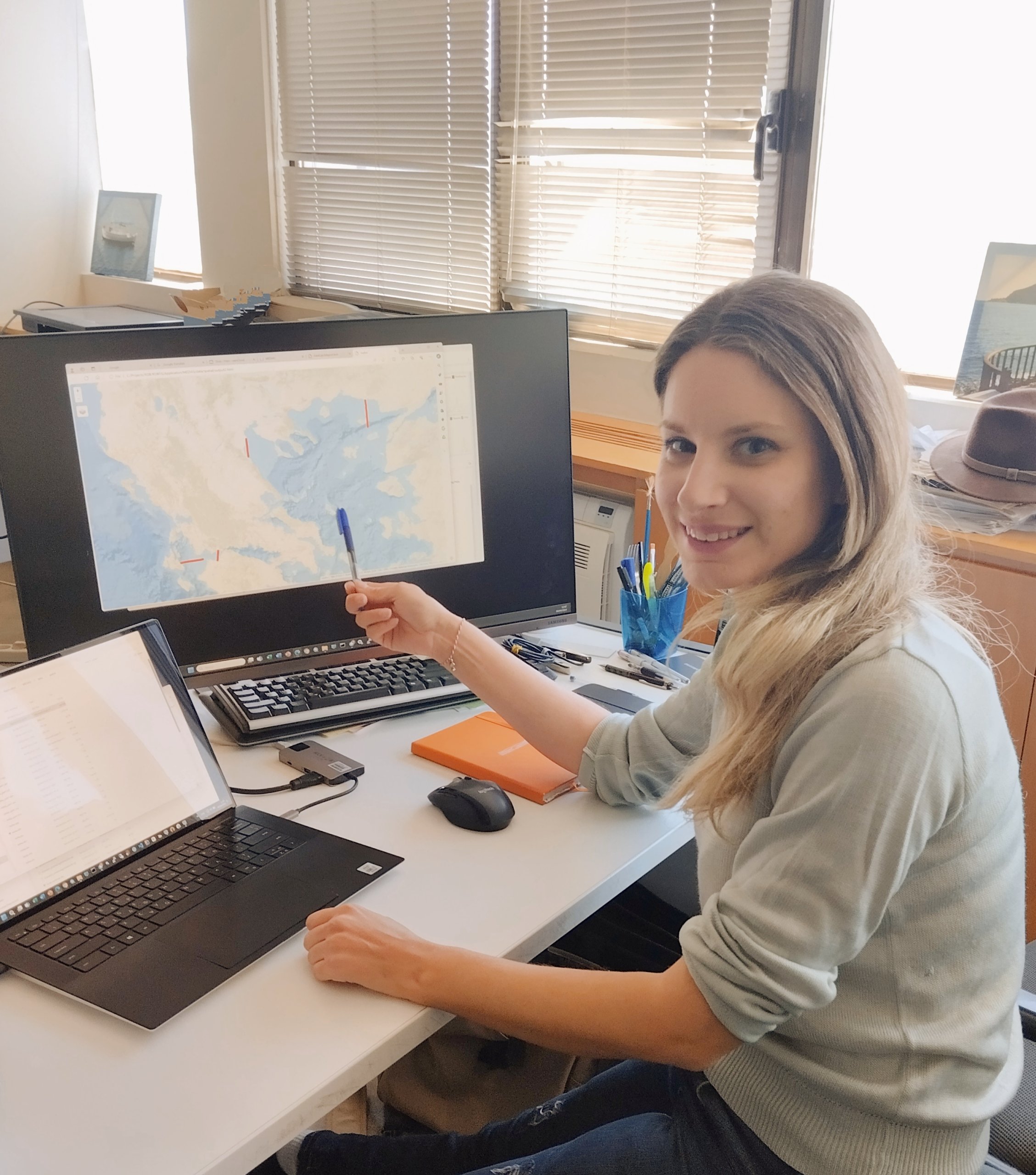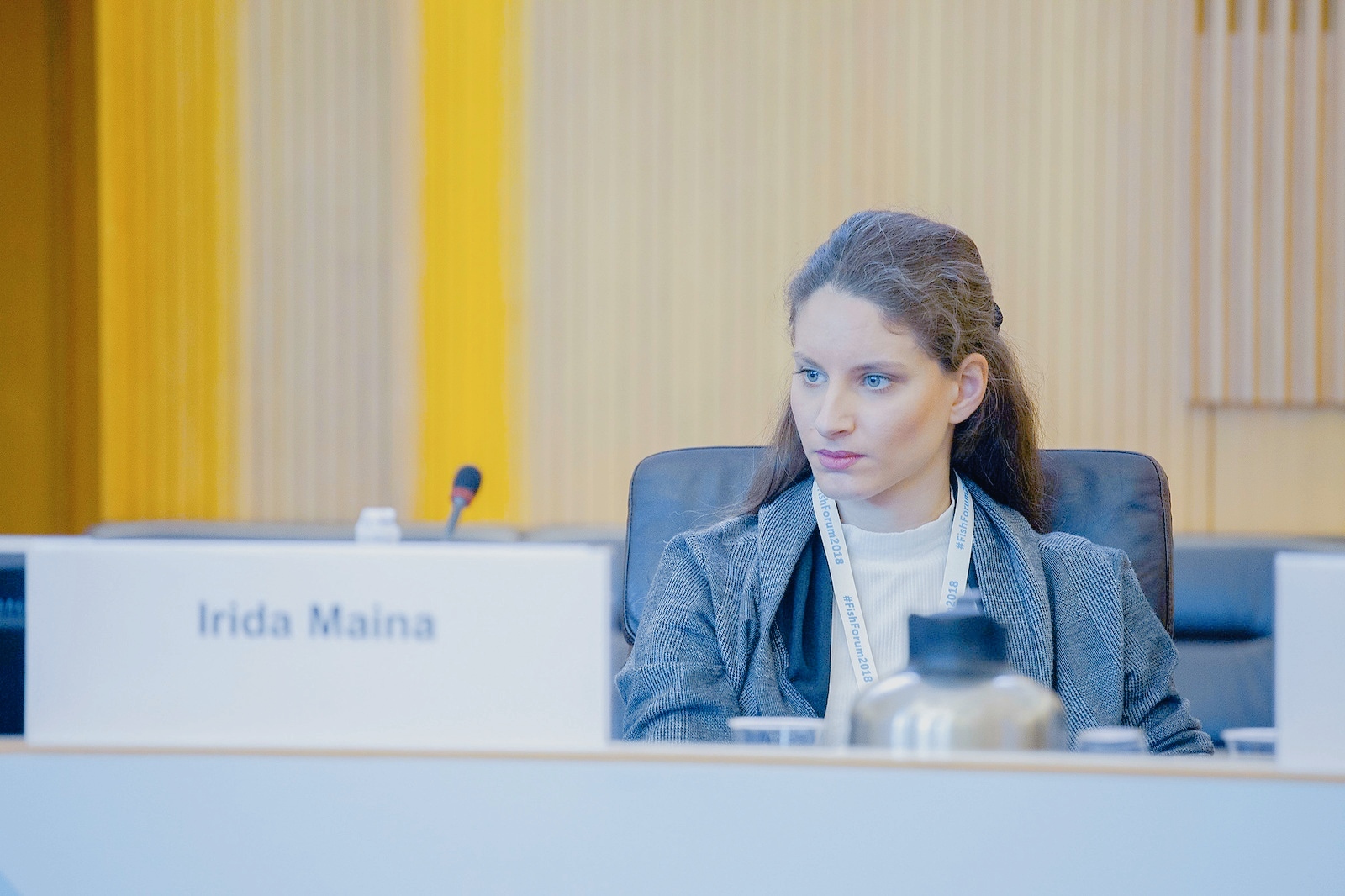SEAwise involves a team of researchers from 24 universities and research organisations across Europe. Coming from a range of backgrounds and disciplines, together they are working to build a new knowledge base for effective implementation of Ecosystem Based Fisheries Management (EBFM) in Europe. We recently spoke to a number of them about what drives them in this space, and what excites them most about their work within SEAwise!
How is EBFM important to you?
I believe that EBFM should be informed by the best scientific evidence available and provides a multidisciplinary approach to science. Under this framework, I always try to collaborate with other researchers coming from different academic fields (e.g. biologists, technical, social scientists and economists). I think that this is important not only for enhancing my own knowledge, but also for refining methods for providing robust fisheries and scientific advice. In my own work, I am also trying to adapt and integrate scientific methodologies from the realms of geosciences, mathematics, and fisheries science to enhance analytical approaches that are useful in support of EBFM.
Which aspects of EBFM interest you most, and why?
Recognising the complexity of EBFM, I prioritise improving my knowledge and methods for predicting the ecological, social, and economic impacts of fisheries management options. This can be achieved by taking into account when and where people fish (fisher’s behaviour), environmental drivers, and uncertainty (often in part, due to limited data availability). I think that it is very important to consider these aspects in modelling approaches, in order to facilitate more informed decision-making in fisheries management.

How do you think your work in SEAwise will improve EBFM?
So far, I have contributed to the development of a tool that integrates spatial data and multiple decision criteria to predict where fishing vessels will fish, particularly at the level of small-scale fishing vessels which are not typically equipped with monitoring devices. I am also working on the development of a framework to anticipate the cost implications of several fisheries management measures, including space-time closures of eastern Ionian Sea fisheries. At SEAwise we are working towards this framework by modeling the distribution of fishing effort across space, the number of fish, biological indicators of fish stocks, and economic data to create a spatial model which accounts for both the economic and biological aspects of fisheries. The findings of this work will improve EBFM, by providing insights concerning the fishing sector for policymakers and building work towards evidencing management trade-offs, and therefore a more transparent and equitable decision–making process.
What future work by SEAwise are you most excited by?
I have previously contributed to an evaluation of fishing effects on bycatch of potentially endangered and threatened species (PETs), benthic habitats and the impacts of fisheries related marine litter. The outcomes of this work provides useful information in support of the EU Common Fisheries Policy (CFP), Maritime Spatial Planning Directive and Marine Strategy Framework Directive (MSFD). Looking to the future, I am interested in trying to integrate aspects related to climate change, further aspects of species bycatch and uncertainty into the models, with the aim of exploring the effects of spatial management measures on species, habitats, fisheries selectivity (ability to target certain stocks, or portion of a stock, without capturing others), and fuel costs.

“A SEAwise highlight to date has been having the opportunity to collaborate with scientists from many disciplines, who have all contributed to improving my knowledge and understanding of fisheries science and EBFM. I have also participated in ICES working groups such as ‘WKFISHDISH2’ on methods for predicting fish species distributions.”
Irida is a fisheries scientist and postdoctoral researcher at the Hellenic Centre for Marine Research (HCMR) in Greece. She is a specialist in spatial data analysis, geoinformatics and bio-economic modelling. Her current SEAwise work focuses on identifying important fishing grounds, areas of high bycatch and exploring the economic trade-offs of fisheries management measures. Irida’s previous work includes the use of onboard tracking systems to explore fishing effort and behaviour in space and time, as well as fleet interactions with environmental and economic factors.
Our dynamic network of fisheries stakeholders is key to SEAwise’s work. We are actively seeking representatives from key management agencies, the fishing sector, NGOs and the scientific community to take part in workshops and other in-person or online knowledge-gathering activities. The shared insights and lived experiences of network members will support the development of a comprehensive understanding of the needs and priorities of a diverse range of fisheries stakeholders, and how to fulfil these.
Stay up to date with SEAwise news and research, hear about upcoming events, and receive updates on fisheries news from across the European seascape.